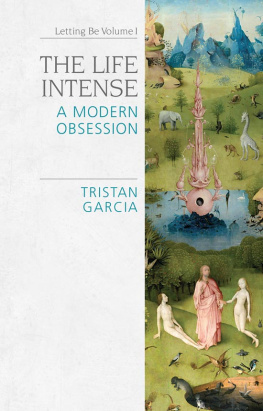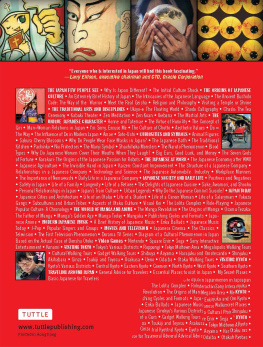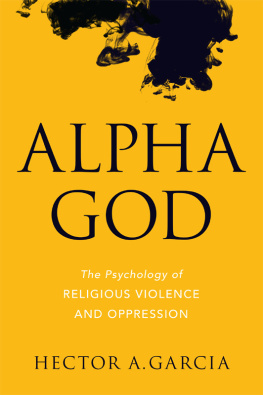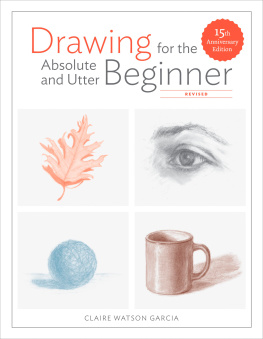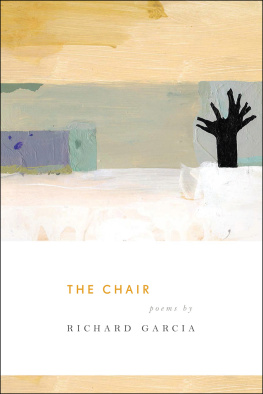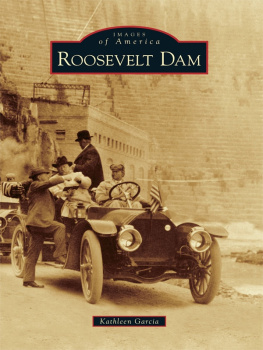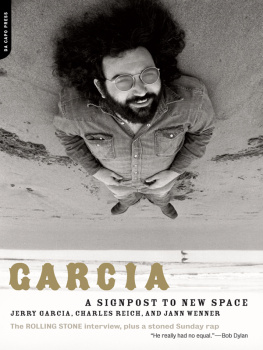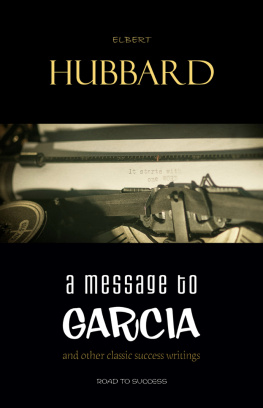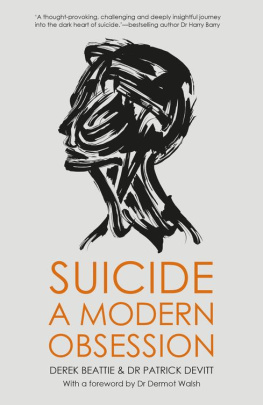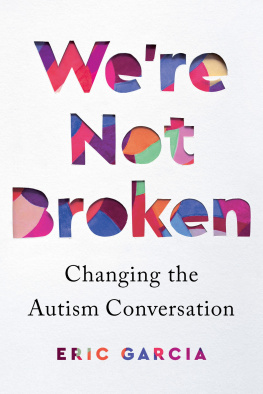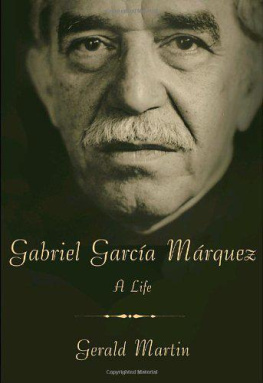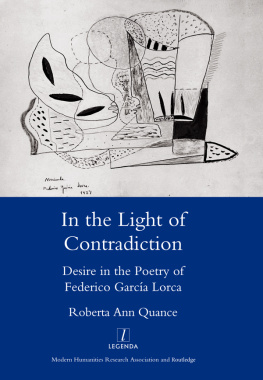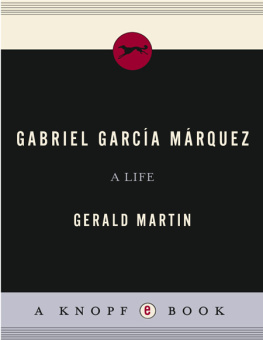Garcia - The Life Intense: a Modern Obsession
Here you can read online Garcia - The Life Intense: a Modern Obsession full text of the book (entire story) in english for free. Download pdf and epub, get meaning, cover and reviews about this ebook. year: 2018, publisher: Edinburgh University Press, genre: Science. Description of the work, (preface) as well as reviews are available. Best literature library LitArk.com created for fans of good reading and offers a wide selection of genres:
Romance novel
Science fiction
Adventure
Detective
Science
History
Home and family
Prose
Art
Politics
Computer
Non-fiction
Religion
Business
Children
Humor
Choose a favorite category and find really read worthwhile books. Enjoy immersion in the world of imagination, feel the emotions of the characters or learn something new for yourself, make an fascinating discovery.
The Life Intense: a Modern Obsession: summary, description and annotation
We offer to read an annotation, description, summary or preface (depends on what the author of the book "The Life Intense: a Modern Obsession" wrote himself). If you haven't found the necessary information about the book — write in the comments, we will try to find it.
The Life Intense: a Modern Obsession — read online for free the complete book (whole text) full work
Below is the text of the book, divided by pages. System saving the place of the last page read, allows you to conveniently read the book "The Life Intense: a Modern Obsession" online for free, without having to search again every time where you left off. Put a bookmark, and you can go to the page where you finished reading at any time.
Font size:
Interval:
Bookmark:

The Life Intense
Speculative Realism
Series Editor: Graham Harman
Editorial Advisory Board
Jane Bennett, Levi Bryant, Patricia Clough, Iain Hamilton Grant, Myra Hird, Adrian Johnston, Eileen A. Joy
Books available
Onto-Cartography: An Ontology of Machines and Media, Levi R. Bryant
Form and Object: A Treatise on Things, Tristan Garcia, translated by Mark Allan Ohm and Jon Cogburn
Adventures in Transcendental Materialism: Dialogues with Contemporary Thinkers, Adrian Johnston
The End of Phenomenology: Metaphysics and the New Realism, Tom Sparrow
Fields of Sense: A New Realist Ontology, Markus Gabriel
Quentin Meillassoux: Philosophy in the Making Second Edition, Graham Harman
Assemblage Theory, Manuel DeLanda
Romantic Realities: Speculative Realism and British Romanticism, Evan Gottlieb
Garcian Meditations: The Dialectics of Persistence in Form and Object, Jon Cogburn
Speculative Realism and Science Fiction, Brian Willems
Speculative Empiricism: Revisiting Whitehead, Didier Debaise, translated by Tomas Weber
Letting Be Volume I: The Life Intense: A Modern Obsession, Tristan Garcia, translated by Abigail RayAlexander, Christopher RayAlexander and Jon Cogburn
Forthcoming books
Letting Be Volume II: We, Tristan Garcia, translated by Abigail RayAlexander, Christopher RayAlexander, and Jon Cogburn
Letting Be Volume III: Let Be and Make Powerful, Tristan Garcia, translated by Abigail RayAlexander, Christopher RayAlexander and Jon Cogburn
After Quietism: Analytic Philosophies of Immanence and the New Metaphysics, Jon Cogburn
Infrastructure, Graham Harman
SpeculativeGrammatology: Deconstructionand the New Materialism, Deborah Goldgaber
Visit the Speculative Realism website at: edinburghuniversitypress.com/series/specr
L ETTING B E V OLUME I
The Life Intense
A Modern Obsession
Tristan Garcia
Translated by Abigail RayAlexander, Christopher RayAlexander and Jon Cogburn
EDINBURGH
University Press
Edinburgh University Press is one of the leading university presses in the UK. We publish academic books and journals in our selected subject areas across the humanities and social sciences, combining cutting-edge scholarship with high editorial and production values to produce academic works of lasting importance. For more information visit our website: edinburghuniversitypress.com
La Vie Intense: Une obsession modern by Tristan Garcia Autrement, Paris, 2016
English translation Abigail RayAlexander, Christopher RayAlexander, Jon Cogburn, 2018
Edinburgh University Press Ltd
The Tun Holyrood Road,
12(2f) Jacksons Entry,
Edinburgh EH8 8PJ
Typeset in 11/13 Bembo by
IDSUK (DataConnection) Ltd, and
printed and bound in Great Britain.
A CIP record for this book is available from the British Library
ISBN 978 1 4744 3711 0 (hardback)
ISBN 978 1 4744 3713 4 (webready PDF)
ISBN 978 1 4744 3712 7 (paperback)
ISBN 978 1 4744 3714 1 (epub)
The right of Tristan Garcia to be identified as the author of this work has been asserted in accordance with the Copyright, Designs and Patents Act 1988, and the Copyright and Related Rights Regulations 2003 (SI No. 2498).
Contents
Series Editors Preface
This English translation of The Life Intense, the opening third of a nearly completed trilogy entitled Letting Be, is the second book by Tristan Garcia to appear in the Edinburgh University Press Speculative Realism series. Garcia (b. 1981), a native of Toulouse now employed at the University of Lyon, is already among the best-known philosophers of his generation. His lengthy work Form and Object: A Treatise on Things, which appeared in this series in 2014, captured the public imagination with its rare blend of systematic rigour and sensitive insight into the intimate features of contemporary human life. Form and Object also inspired one of the most important commentaries on any continental philosopher in recent decades: Jon Cogburns Garcian Meditations, which appeared in this series in 2017. In that masterfully argued book, Cogburn makes a strong case for Garcia having already secured his place in the history of philosophy, while also linking his work with that of the daringly offbeat analytic philosopher Graham Priest (b. 1948). Cogburn has not yet had his fill of Garcia, and returns as his co-translator once more, this time in the company of Abigail and Christopher RayAlexander.
As we are reminded in the Translators Introduction below, the notion of intensity has had an important place in Garcias thinking from the outset. Form and Object was famously split into two parts, the first dealing with anything nimporte quoi, or no-matter-what (a technical term in his system). In this connection Garcia gave us the flattest of flat ontologies, compared with which even the claim of Object-Oriented Ontology (OOO) that all real and fictional things are objects was made to look too conservative: for Garcia, after all, even parts and portions of objects count as no-matter-what to no less an extent than mid-sized everyday objects. The rigorous austerity of the analyses early in Form and Object have reminded both me and others of Hegels Science of Logic. By contrast, the second part of Form and Object turns from the ascetic poverty of things to the colourful determinacy of what Garcia calls objects; here we find a sequence of cultural analyses more reminiscent of Hegels Phenomenology of Spirit. In Garcian Meditations, Cogburn clarifies why this twofold description of entities as both things and objects is a thrilling high-wire act that enriches Western philosophy. Although I will not attempt to gloss Cogburns argument here, there is no question that intensity is the key new ingredient in the second part of Form and Object, the one that allows Garcia to shift from flat austerity to a lush forest of concrete insights. Nonetheless, Garcia would be the first to admit that intensity receives insufficient treatment in that book. The Life Intense is, in no small part, an attempt to make good on his obligation to the reader to say more about this pivotal concept, which he treats in a way rather different from that of Gilles Deleuze and his followers.
The Life Intense is so compellingly written that I need not belabour its argument here. Garcia gives us a highly original definition of modernity in terms of the prominence it grants to electricity, viewed originally as a means of escaping the cold objectivity of modern science: recall the crucial role of this phenomenon in the philosophy of nature of F. W. J. Schelling (17751854), who was certainly no mechanist. The theme of electricity animates Garcias fascinating discussion of the history of ethical intensity running from the libertine, through the romantic, on up to the adolescent: a newly prominent historical character who already played the starring role in Form and Object. In this connection, The Life Intense offers what is surely the most profound meditation ever attempted on the philosophical significance of the electric guitar: these few pages alone are worth the price of the book! Garcia also draws a useful distinction between the electric and its de-intensified version, the electronic, the latter being our apparent destiny as the modern , with its discussion of the three ruses we employ in an attempt to maintain intensity: variation, acceleration, and what Garcia terms
Next pageFont size:
Interval:
Bookmark:
Similar books «The Life Intense: a Modern Obsession»
Look at similar books to The Life Intense: a Modern Obsession. We have selected literature similar in name and meaning in the hope of providing readers with more options to find new, interesting, not yet read works.
Discussion, reviews of the book The Life Intense: a Modern Obsession and just readers' own opinions. Leave your comments, write what you think about the work, its meaning or the main characters. Specify what exactly you liked and what you didn't like, and why you think so.

